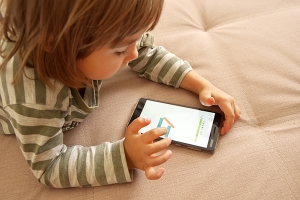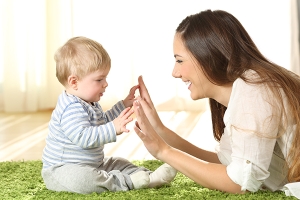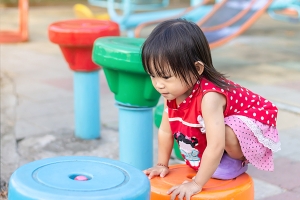
I was born on April 1, so I know a thing or two about humor. April Fools’ Day jokes and gifts make celebrating my birthday an adventure in laughter. I once received a large box of dirt topped with a tiny shovel I used to dig for my gift. It came with a beautifully frosted cake that I discovered was made entirely of Styrofoam when I tried to cut it. I’m here to testify that April Fools’ Day just might be the funniest day to celebrate a birthday. Also, to say how powerful humor is to bind families together by celebrating the gift of laughter. But humor does much more than add laughter to celebrations.
Humor helps with parenting.
Humor helps parents keep perspective and takes the sting out of frustrating moments like a child’s tantrum in the grocery store or a teen’s unhealthy attachment to her cell phone. It helps children understand that discipline is about changing unwanted behavior, not about disliking who they are as people. A light-hearted correction guards against shame-based discipline and communicates love and affection despite what went wrong.
As they grow, kids who learn how to laugh off mistakes and try again gain the confidence and resilience needed to succeed. One study out of Pennsylvania State University reports that the ability to use humor to cope with stressful situations even contributes to a student’s adjustment to college life, impacting their retention and likelihood of graduating.
Laughter is a valuable coping skill.
“Humor is a great coping mechanism to help regulate stress, frustration and worry,” says Reena B. Patel, a San Diego parenting expert, licensed educational psychologist and board-certified behavior analyst. “We live in a world where children feel that they need to be perfect. Learning to laugh at mistakes and try again breaks the cycle of unrealistic perfectionism.
“Laughter is also a wonderful way to get kids to think about and name their emotions,” says Patel. “Learning to name emotions helps kids develop self-awareness, which is an important part of learning to self-regulate. It’s one of the best coping gifts parents can give kids.”
Adding humor to your parenting toolbox comes with lots of benefits. But what can you do if you don’t think you’re funny?
Aim for lightening the mood.
You don’t have to be a comedian or even know how to tell a good joke to enjoy the benefits of humor in your family. Simply aim for lightening the mood and get comfortable with laughing at your own mistakes.
“Seeing parents mess up, laugh about it and try again demonstrates how to problem solve,” says Patel. “Watching your example is more powerful than simply hearing you say it’s OK to make mistakes. You’re modeling how to balance the serious and the not-so-serious things in life.” Patel encourages parents to make intentional mistakes in front of kids and laugh about them together.
Create moments with laughter that let kids know you roll with the punches. Let those moments become part of your family’s story, remembered and retold for more smiles later.
Tap into the power of stories.
Sharing funny family memories is an easy way to increase laughter. Encourage each family member to tell their part of the story and how they felt about it at the time. Was it something serious that you can laugh about now? If so, use it as an opportunity to build hope and optimism by reassuring kids that challenges often turn out fine.
Encinitas mom Tonya Meeks finds that light-hearted storytelling with her 4-year-old son helps with transitions like leaving the playground or getting ready for bath time. “I’ll start a silly story about what we need to do next and ask him to add to it. We’ll keep taking turns, going back and forth and being playful. It sets a tone and creates a connection that helps make things like boundaries and bedtime more fun and effective.”
With young children, read books like No, David! by David Shannon or Alexander and the Terrible, Horrible, No Good, Very Bad Day by Judith Viorst. These and many others treat everyday mishaps and emotions with humor and understanding.
Don’t be afraid of being corny. Use a joke book or share funny things you see online to connect with kids and laugh together.
Now is a good time for laughter.
Humor and laughter have the power to elevate your family’s mood, relieve stress and strengthen connections. It lightens the load, builds resilience and gives kids confidence to try again when they fall short. The simple act of laughing together is a gift that makes life more enjoyable, fun and energizing for you and your children.
Who knew my April Fools’ Day birthday was teaching me so much?
Note: When Humor Isn’t Appropriate
Sometimes the use of humor isn’t the answer. For example, when a child is in danger or someone’s feelings might be hurt. A good rule of thumb is to use humor to encourage and build each other up, not embarrass or put each other down. Watch for teaching moments to discuss compassion and empathy with kids, and model appropriate use of humor. Teasing, disparaging remarks, sarcasm and put-downs said with, “Why can’t you take a joke?” do more harm than good.
Resources for Parents & Kids
- Reena B. Patel -- Workshops, parenting tips, and her book, Winnie & Her Worries.
www.reenabpatel.com - Laugh & Learn Book Set from Kaplan Early Learning Co. (ages 8+)
Jody Lee Cates is a local mom and award-winning writer who blogs about healthy relationships at www.jodyleecates.com. She is the author of our column "Parenting with Purpose."

"Parenting with Purpose" won an award from San Diego Press Club! Jody Lee Cates received First Place in the Column: Serious Subject category. See all of San Diego Family's awards HERE.
For more about helping kids learn to name emotions, read our article “There’s a Silver Lining in Challenging Times” at www.sandiegofamily.com/parenting/how-to-help-children-cope-disappointment.
_________________________















